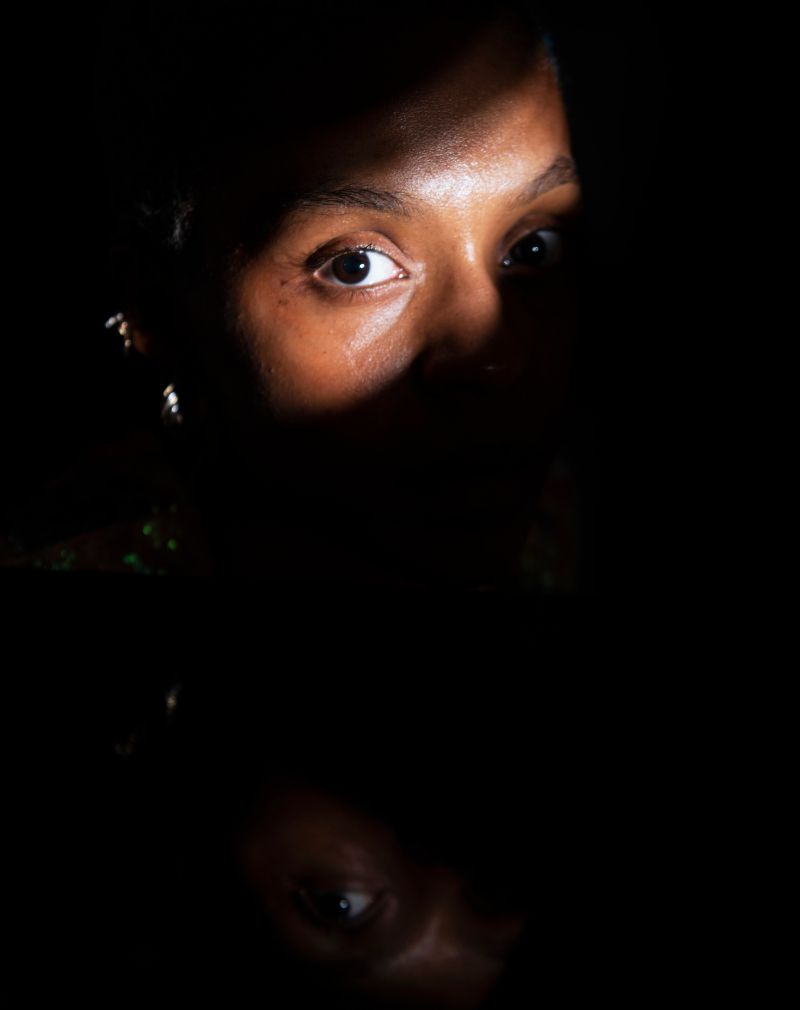Relationships are the heartbeat of our lives, grounding us through tough times and elevating us in moments of joy. They offer companionship, support, and a sense of belonging. But behind the scenes, there’s another powerful force that keeps these connections thriving: hope. Hope is more than just a fleeting feeling. It is like a lighthouse standing firm on the edge of a stormy sea. Just as a lighthouse casts its beam to guide ships safely through darkness and peril, hope shines within us during times of despair and uncertainty. It doesn’t calm the storm, but it offers a steady light, a direction when all seems lost. The lighthouse symbolizes steadfastness and resilience, and hope provides that same unwavering guide through life’s tumultuous moments. By holding onto hope, we find the courage and strength to navigate through challenges, moving toward a brighter, more peaceful horizon where new possibilities await. In essence, hope is the beacon that keeps us moving forward, despite the raging seas around us.
So, what exactly makes hope so impactful in relationships? How does it influence our personal and professional growth? And how can we cultivate more hope in our lives? Let’s explore these questions, along with some practical tips and insights on when to seek help from mental health professionals.
Building Bridges: Why Hope is the Key
Hope transcends mere optimism; it is a profound, forward-thinking mindset that envisions a future worth striving for. It is the light that pierces through the fog of uncertainty, illuminating possibilities that inspire action and perseverance. When hope is shared between individuals, it becomes the adhesive that binds them together, especially during life’s most challenging chapters. In the realm of relationships—be it romantic partnerships, friendships, or familial bonds—hope offers a common horizon to aim for, reminding us that we are part of a narrative larger than ourselves. According to Dr. Muhammad Tahir , “Hope is the bridge that connects today’s struggles with tomorrow’s peace.”
It Encourages Mutual Investment
When two people share hope, they are actively investing in each other’s lives and futures. This mutual investment fosters a strong desire to protect and nurture the relationship, making it more resilient against conflicts and challenges. Consider a couple dreaming of building a life together: their shared vision—perhaps owning a home, starting a family, or embarking on adventures—serves as a powerful motivator. This collective aspiration encourages them to compromise when disagreements arise, collaborate on making decisions, and commit to overcoming obstacles together.
This mutual investment is not limited to romantic relationships. In friendships, when individuals support each other’s dreams—like starting a business or pursuing higher education—they are investing in each other’s growth. This shared hope strengthens the bond, as both parties feel valued and understood. They celebrate each other’s successes and provide support during setbacks, knowing that their journeys are interconnected.
It Builds Resilience
Hope acts as a buffer against the inevitable trials of life. It instills a sense of purpose and direction, helping individuals hold onto what is good in their relationships even when faced with adversity. For example, if friends face a misunderstanding or a significant life change—such as moving to different cities—the hope of maintaining a lifelong connection motivates them to keep in touch and overcome the distance.
In familial relationships, hope can be the force that holds members together during tough times like financial hardships or health crises. Believing that better days lie ahead provides the strength to support one another, fostering a collective resilience. This shared hope empowers families to face challenges head-on, reinforcing their bonds as they navigate through difficulties together.
It Enhances Emotional Intimacy
Sharing hopes and dreams is a profound act of vulnerability that deepens connections. When individuals open up about their aspirations and fears for the future, they reveal layers of themselves that are deeply personal. This openness fosters trust, as it signals a willingness to be seen and understood on a deeper level.
In romantic relationships, discussing future goals—such as career ambitions, personal growth, or desires for the relationship—creates a roadmap that both partners can navigate together. This shared journey enhances emotional intimacy, as each person feels supported in their individual pursuits while also working towards common objectives.
In friendships, encouraging a friend to pursue their dreams or sharing personal aspirations can transform the dynamic from casual to deeply meaningful. This exchange of hopes not only strengthens the existing bond but also creates a supportive environment where both individuals feel empowered to strive for their goal
Cultivating Hope with Loved Ones: Practical Tips for a Stronger Bond
While hope often comes easily in the beginning stages of a relationship, it can require effort to sustain over time. But with intentionality, you can create a hopeful environment that supports you and your loved ones. Here are some practical ways to keep hope alive in your relationships:
1. Set Future Goals Together
Shared goals give you a reason to work together toward a common purpose, creating a sense of partnership and alignment. These goals don’t need to be grand—small plans, like taking a weekend road trip or starting a new hobby together, can be just as meaningful. The important thing is that you’re building a future that you both look forward to. For example, a couple might set a goal to save for a vacation or buy a home, while friends could plan to volunteer together or train for a marathon.
2. Celebrate Small Victories
Often, we wait for big milestones to celebrate, but small victories deserve recognition too. Celebrating these wins reinforces the idea that you’re making progress and that you’re in it together. Maybe your partner got a promotion, or a friend finally finished a project they’ve been working on. Take the time to acknowledge these accomplishments, as they reinforce a sense of momentum and build optimism for the future.
3. Create Rituals of Connection
Rituals, whether daily, weekly, or monthly, provide structure and help keep the relationship fresh. These could be as simple as morning coffee together, a weekly movie night, or an annual camping trip. Regular rituals give you and your loved ones something to look forward to, strengthening your bond and giving you a chance to reconnect.
4. Practice Gratitude
Gratitude and hope go hand in hand. When you focus on what’s going well, it becomes easier to imagine a positive future. Expressing appreciation for the people in your life also builds a foundation of trust and respect. Simple gestures—a quick “thank you” or a note of appreciation—can remind you both why you’re grateful to be part of each other’s lives.
5. Support Each Other’s Personal Growth
Relationships thrive when both people feel encouraged to pursue their goals and dreams. When you support your partner or friend in their personal growth, you’re reinforcing hope in the relationship itself. It sends the message that you believe in their potential and that you’re excited to see what the future holds. Celebrate each other’s progress, be it learning a new skill, tackling a challenge, or reaching a personal milestone.
The Role of Hope in Personal and Professional Relationships
While hope can lift us up, hopelessness can weigh us down, affecting not only our relationships but also our personal and professional lives. Hopelessness often stems from prolonged stress, lack of trust, or a feeling of being “stuck” with no way forward. In relationships, it can lead to withdrawal, frustration, and a lack of motivation to invest in the future.
The Impact of Hopelessness on Personal Growth
When someone loses hope in their relationship, they may stop investing in their own growth. They might feel unmotivated to try new things, set goals, or pursue their passions. Without a sense of purpose, they may find themselves simply going through the motions, losing sight of what brings them joy and fulfillment. This stagnation can spill over into other areas of life, diminishing their overall well-being.
The Impact of Hopelessness on Professional Growth
Hopelessness in personal relationships often impacts professional life as well. When someone feels disconnected or unsupported at home, it can become difficult to find meaning or motivation at work. They may become less engaged, less productive, and less likely to seek out new opportunities. The cycle of hopelessness can lead to career stagnation, as the lack of personal fulfillment translates into a lack of professional ambition.
Hopelessness in Relationships: How it Holds Us Back
When to Reach Out for Professional Help!
Hope can sometimes feel elusive, especially in the face of overwhelming challenges. While it’s possible to rebuild hope on your own, there are times when seeking help from a mental health professional can make a significant difference. Here are some signs that it might be time to consider reaching out for support:
- Persistent Feelings of Hopelessness: If you or your loved one feels stuck in a cycle of hopelessness, unable to envision a positive future, a therapist can help explore the root causes and provide strategies to move forward. Therapy can help you reconnect with a sense of purpose and rebuild optimism.
- Difficulty Communicating: Communication is essential for cultivating hope, but when it breaks down, feelings of hopelessness can grow. A therapist can offer tools and techniques to improve communication, bridge gaps, and restore a sense of connection.
- Loss of Interest in Activities: If you or someone you care about is withdrawing from activities you once enjoyed, it may be a sign of deeper issues. A mental health professional can help address underlying challenges, making it easier to re-engage with life and rebuild hope.
- Emotional Disconnection: Emotional disconnection can damage hope in relationships. Therapy provides a safe space to explore feelings, express needs, and reestablish intimacy. This process can help both partners or friends rediscover their shared purpose and look forward to the future together.
How Mental Health Professionals Help Restore Hope in Relationships
Mental health professionals including Psychologists, psychiatrist, Clinical psychologist, counselors and Therapists offer various approaches to help individuals and couples reconnect with hope. At American Wellness Center located at Dubai Healthcare City , our mental health team is highly qualified and trained who can help the individuals in need though evidence based interventions . Here are some of the most effective therapeutic methods:
– Cognitive Behavioral Therapy (CBT): CBT helps individuals identify and challenge negative thought patterns, replacing them with more positive and realistic perspectives. By working with a therapist, you can develop a more hopeful outlook and start taking actionable steps toward your goals.
– Solution-Focused Therapy: This type of therapy is short-term and goal-oriented. It focuses on specific, achievable outcomes rather than dwelling on past issues. Solution-focused therapy is ideal for couples or individuals looking to make immediate improvements and restore hope in their lives.
– Couples Therapy: For romantic relationships, couples therapy can be incredibly beneficial. It provides a structured environment to explore challenges, build better communication skills, and work together toward shared goals. A therapist can help couples reconnect with their dreams and aspirations, reminding them why they’re invested in each other’s lives.
Individual Psychiatry and therapy sessions
If you feel down and are not able to find a ray of hope even without trying your hard, its better to book individual sessions with Psychiatrist for initial screening . At American Wellness center we offer therapy options as well where our aim is to provide a safe space to individuals to open up and find out the root cause of such hopelessness and address it to bring back the light of hope.
Support groups for Emotional support and finding the lost hope
It is also recommended to join a support group run under the clinical supervision of a metal health professional where you can meet and share your feelings, get support and learn coping skills. At American wellness Center we offer support groups addressing such issues.
The Transformative Role of Hope in Relationships
Hope is the invisible thread that weaves together the fabric of our relationships, binding us through shared dreams, mutual aspirations, and a collective belief in a brighter future. It is not merely an abstract concept or a passive emotion; rather, it is an active, dynamic force that propels us to invest in one another, to weather storms together, and to delve deeper into emotional intimacy. Throughout the journey of any relationship—be it romantic, platonic, or familial—hope serves as both the compass and the anchor, guiding us forward while keeping us grounded in shared values and visions.
At the heart of mutual investment lies the understanding that relationships flourish when both parties are committed to nurturing them. Hope encourages this investment by presenting a vision of what the relationship can become. When individuals share their hopes and dreams, they are essentially charting a course together, setting goals that require collaboration and mutual support. This shared roadmap transforms relationships from mere interactions into partnerships built on common objectives. It is the catalyst that transforms connections into lifelong bonds, the spark that ignites collaborative endeavors, and the balm that soothes during times of distress. By nurturing hope within our relationships, we not only enhance the quality of our interactions but also contribute to a more compassionate and interconnected world. Hope inspires us to look beyond ourselves, to see the potential in others, and to work collectively towards a future that benefits all. It reminds us that while the journey may be challenging, it is also filled with possibilities that make every step worthwhile.
As we navigate the complexities of our relationships, let us hold onto hope as our guiding star. Let us invest in one another, build resilience together, and deepen our emotional connections. In doing so, we not only honor the bonds we share but also pave the way for a future rich with understanding, love, and shared accomplishment. Hope, in its quiet yet profound way, ensures that our relationships are not just part of our lives but are integral to the fulfillment and joy we seek.



